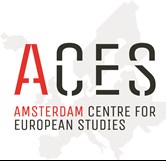[Online Conference] Migration deals and their damaging effects
08 - 09 October 2020- Starts at: 09:30h
- Fee: Free
- Venue: Online
- Organiser: T.M.C. Asser Instituut, ACES
-
Address:
R.J. Schimmelpennincklaan 20-22
2517 JN The Hague
Netherlands - Register
Covid-19 update
Due to the coronavirus outbreak, the format of this conference has been changed into an online conference.
On the 8th to the 9th of October 2020, the Amsterdam Centre for European Studies (ACES) and the T.M.C. Asser Instituut will co-organise an interdisciplinary conference on the implications of the increasing use of informal (non-binding) instruments in the field of migration. The conference will examine issues raised by the prevalent use of migration deals and informal arrangements between the EU and third countries in an effort to manage migration flows.
In the last few years, informal instruments have been replacing binding international agreements in the field of EU asylum and migration policy. Examples are the EU-Turkey deal and the Joint Way Forward with Afghanistan (an informal readmission agreement).
Though the use of informal instruments is nothing new in EU external relations, the increasing recourse to such instruments recently is of grave concern for multiple reasons, think Asser researchers and project leaders Dr Narin Idriz and Dr Eva Kassoti.
Big consequence
Idriz: “One of the biggest consequences, for instance, is that the non-binding nature of these instruments makes it almost impossible for individuals to challenge them in courts. This makes it very hard to enforce any rights they might have under international or European law.”
According to Idriz, the NF, NG, and NM cases brought in front of the General Court, and subsequently appealed to the European Court of Justice are a case in point. The cases were dismissed as the Court established it was the Member States and not the EU that were behind the deal.
Informal instruments like the EU-Turkey deal or the Joint Way Forward are also problematic from a constitutional perspective, believes Eva Kassoti. “The choice to act outside EU Treaties and to ignore the prescribed procedure for concluding international agreements results in less transparency, democratic scrutiny, accountability and legitimacy.”
On the conference
The conference will examine the issues raised by this process of informalisation in five thematic panels: ‘constitutional implications’, ‘fundamental rights’, ‘implications for the functioning and integrity of the Common European Asylum System’, ‘impact on 3rd countries’, and ‘global implications’. You can download the full programme here.
This conference is part of the Global Europe project that focuses on 'Europe as a global player in the new strategic context'. ‘Global Europe’ is a project within the strand Advancing Public Interests in International and European law.
Participation and registration
To participate, please register here.
The registered participants will receive a website link before the event.
Further reading:
- Maarten den Heijer and Thomas Spijkerboer, “Is the EU-Turkey Refugee and Migration Deal a Treaty?”, EU Law Analysis, 7 April 2016
- Meijers Committee, 1806 Note on the use of soft law instruments under EU law, in particular in the area of freedom, security and justice, and its impact on fundamental rights, democracy and the rule of law, 9 April 2018
- Narin Idriz, “Taking the EU-Turkey Deal to Court?”, Verfassungsblog, 20 December 2017
- Narin Idriz, “The EU-Turkey Statement or the ‘Refugee Deal’: The Extra-Legal Deal of Extraordinary Times?”, T.M.C. Asser Institute for International & European Law, Research Paper 2017-06
Project leaders:

Dr Eva Kassoti Dr Narin Idriz
Convenors: Narin Idriz, Eva Kassoti, Maarten den Heijer, Bas Schotel, Pola Cebulak. Organised in collaboration with the ACES.

